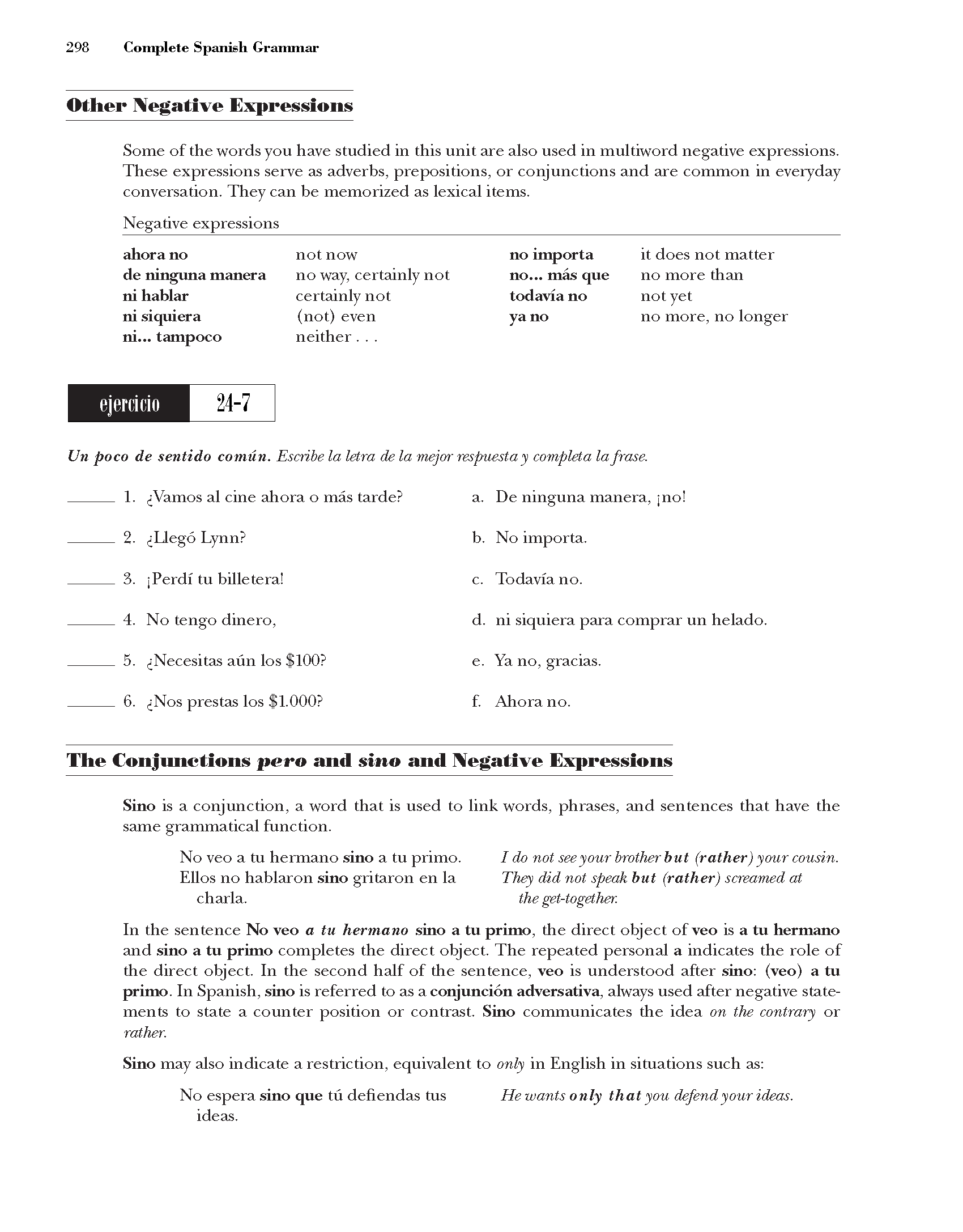CSG309

298 Complete Spanish Grammar
Other ]\egative Expres$ions
Some of the words you have studied in this unit are also used in multiword negative expressions. These expressions serve as adverbs, prepositions, or conjunctions and are common in everyday conversation. They can be memorized as lexical items.
Negative expressions
no importa no... mas que todavla no ya no
aliora no
de ninguna manera ni hablar ni siquiera ni... tainpoco not now
no way, certainly not certainly not (not) even neither . . .
it does not matter no morę than not yet
no morę, no longer
24-7
ejercicio
Un poco de sentido comun. Escńbe la letra de la
_ 1. A'amos al cine ahora o mas tarde?
_ 2. ^Llegó Lynn?
_ 3. jPerdi tu bille tera!
_ 4. No tengo dinero,
_ 5. ^Necesitas aun los $100?
_ 6. ^Nos prestas los $1.000?
mejor respuesta y completa la frase.
a. De ninguna manera, jno!
b. No importa.
c. Todavia no.
d. ni siquiera para comprar un helado.
e. Ya no, gracias.
f. Ahora no.
The Conjunctions per o and sino and ]\egative Expressions
Sino is a conjunction, a word that is used to link words, phrases, and sentences that have the same grammatical function.
No veo a tu hermano sino a tu primo. I do not seeyour brother but (rather) your cousin. Ellos no hablaron sino gritaron en la They did not speak but (rather) screamed at charla. the get-together.
In the sentence No veo a tu hermano sino a tu primo, the direct object of veo is a tu hermano and sino a tu primo completes the direct object. The repeated personal a indicates the role of the direct object. In the second half of the sentence, veo is understood after sino: (veo) a tu primo. In Spanish, sino is referred to as aconjunción adversativa, always used after negative state-ments to State a counter position or contrast. Sino communicates the idea on the contrary or rather.
Sino may also indicate a restriction, equivalent to only in English in situations such as:
No espera sino que tu defiendas tus He wants only that you defendyour ideas.
ideas.
Wyszukiwarka
Podobne podstrony:
CSG327 316 Complete Spanish Grammarejercicio Escribe en espańol. 1. Va of the popu
CSG065 54 Complete Spanish Grammar Gertain expressions of time stress the customary or repetitive na
CSG071 60 Complete Spanish Grammar • to express a series of actions or events completed in the past.
CSG089 78 Complete Spanish Grammar • to express hypothetical actions or events which may or may not
CSG155 144 Complete Spanish Grammar Impersonal expressions followed by the indicative include: es ci
CSG187 176 Complete Spanish Grammar Guarden los libros ya. Pu t the books away imm
więcej podobnych podstron